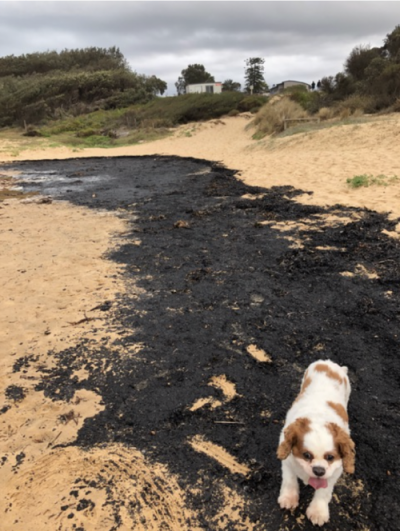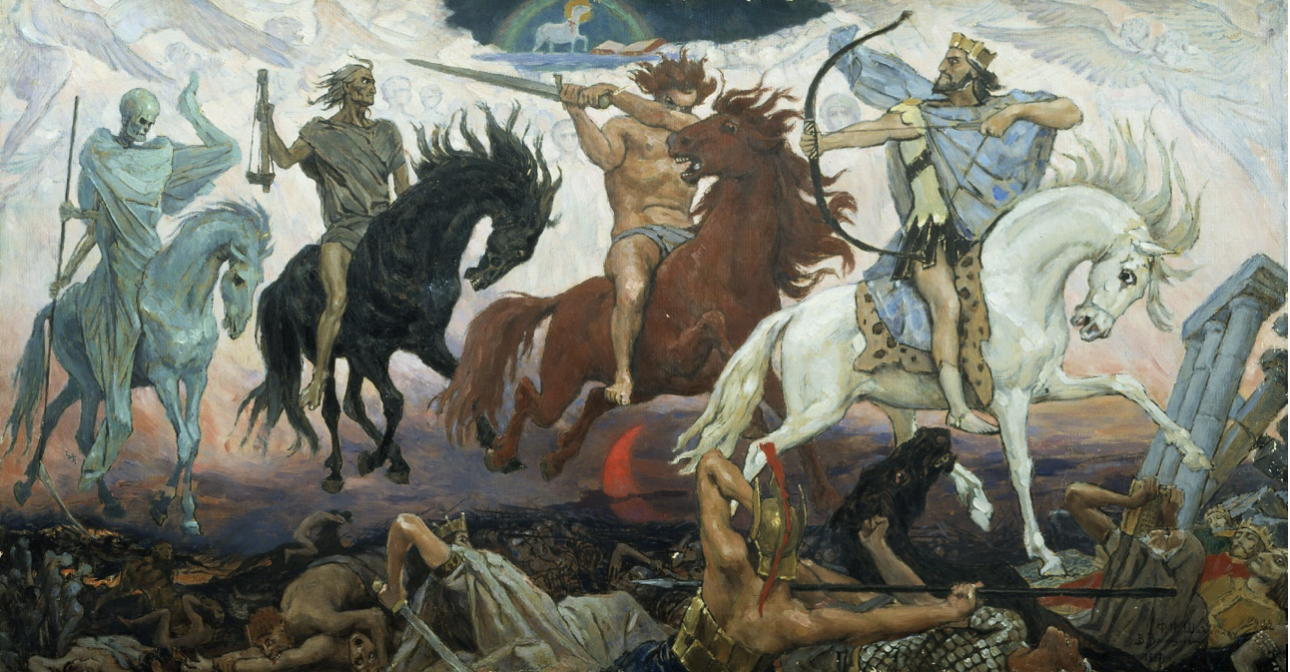One of the most evocative references conjured up in the bible is the Four Horsemen of the Apocalypse. The horsemen are mentioned in the Book of Revelations and historians have been trying to make sense of this obscure and extravagant imagery ever since.
It may not quite have been the end of the world in New South Wales this summer, but we were certainly put through our paces. December began with the entire state in drought. Some farmers had not seen rain for seven years and 2019 finished as Australia’s hottest and driest year on record. Conditions were ripe for our catastrophic bushfire season which began in September.
On New Year’s Eve, temperatures in Sydney rose to the mid-forties centigrade (115 degrees Fahrenheit), humidity dropped, and fierce, hot winds arrived from the desert in central Australia. The state went up like a tinder box. https://en.wikipedia.org/wiki/2019–20_Australian_bushfire_season Huge swathes of the country, comparable in area to mid sized European states were on fire. As our Prime Minister departed for his summer holiday in Hawaii, six thousand homes were destroyed, and 34 people lost their lives. The average Sydney citizen inhaled the equivalent of thirty four cigarettes a day due to the bushfire smoke haze hanging over Sydney.
The third ‘horseman’ to visit our beautiful state was the sudden and dramatic flooding event. Over a single weekend, enough rain fell to supply drought ridden Sydney with water for a whole year. What would normally have been a catastrophe was welcomed with open arms as our dams filled, distraught farmers received their first meaningful rainfall in years and our burnt gardens turned lush green once more.
Our fourth horseman was the coronavirus. Australia is very dependent on Chinese tourism and the annual influx of Chinese students. Many businesses have taken a hit as travel restrictions have been imposed. So far fifteen Australians have been diagnosed with coronavirus, but to date this particular horseman has not been as apocalyptic as forecast. Let’s all hope this potentially devasting disease does not become a global pandemic.
I have finally completed the manuscript of my fourth book. The manuscript is in the safe hands of my proofreader and I have a six week wait before I receive her feedback. From that point I will have one more month to make the minor corrections and consider any last minute structural edits.
It is a book close to my heart. There are numerous references to my childhood home in Zambia and I delighted in inserting references to buildings and places that were part of my formative years. I tried to give the book an ‘Out of Africa’ atmosphere so that it highlighted the beauty of Africa’s sweeping plains but also gave it an edge of danger.
The real heroes of my book are the region’s endangered elephants and I had to walk a fine line between overt sentimentality and the depressing reality of their collapsing numbers. There is an art to conveying a social message to the world without being condescending or preachy and I hope I have achieved the right balance through the medium of fine storytelling.
There are villains galore throughout the book. I had to discard several of them to keep the storyline tight. Africa is ‘blessed’ with corrupt politicians, callous poachers and their sponsors from China. Best of all is the ‘gift that keeps on giving’ for authors such as myself – the Nazis. In this case it is the extreme right wing descendants of the colonials from German South West Africa known as the ‘bush Nazis’. It was their forefathers who perpetrated the first genocide of the twentieth century on the unfortunate Herero and Nama tribes who lived in the Kalahari Desert and the story of this atrocity is weaved through the pages of this new thriller.
Researching the little known history and culture of the region of South Central Africa for the book was an absolute delight. It gave me a much greater understanding and respect for the people I lived amongst three decades ago. I have included more historical and cultural background into the novel than is appropriate for a tight thriller style novel, but I hope my readers will forgive my indulgence. I believe it gives the book a more authentic feel and serves to cover off another of my objectives which is to make the book as enjoyable to Zambian readers as it would to my western audience.
One of the great joys of my formative years was reading the African adventure novels of Wilbur Smith. I still regard him as a hero – he was born in Zambia - and he remains the standard by which every author should measure themselves. I read three or four of his books during the drafting process for my current novel to remind myself how high a bar he has set. It has been an absolute thrill to walk in his footsteps and I hope I can emulate one of his classics. I will provide more details about the forthcoming book in the coming weeks, but the project has given me much satisfaction after months and months of wondering if I would ever be able to do justice to a land and culture that I love so deeply.
Despite a busy holiday season of writing, my family was able to escape to the coast for ten days of relaxation. Two days before, our holiday was in doubt as many of the roads to our holiday destination were closed due to the bush fires and the holidaymakers already there had been evacuated to a safer location. (It was a similar picture along most of the south coast of New South Wales.) But on the day we were due to depart, our Rural Fire Service gave the region the ‘all clear’ and our holiday went ahead. The business owners who depend upon the seasonal influx of tourists had been hard hit and we were very happy to spend our money in the local restaurants and shops. The sea was full of ash and burnt leaves and when the tide came in it left a long thick line of sludge on the sand. Thankfully this has now all disappeared, and life has returned to normal.
I would like to end this newsletter by expressing my gratitude and respect to the brave men and women of Australia’s Rural Fire Service. These real life heroes are all volunteers, and most have ‘ordinary’ day jobs that they put on hold to fight the fires. Many were battling the fires for months under extreme conditions and sadly, several lost their lives including three American water bombing pilots. Authors are in the business of creating fictional heroes, but it is a reminder that there are far greater heroes living among us who go about their business without fuss or need for recognition.

Ash from the recent bushfires on the beaches of New South Wales



While preparing and reading for an upcoming Creative Writing class this morning, I found you!
Now, completely intrigued and up for an adventure, I look forward to diving into one of your books. I will keep an eye out for your next manuscript coming soon to publication..Africa has long been on my wishlist!
Lucky me..